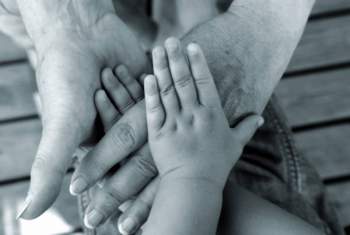
Wisconsin Family Law

Family Forms
A Rundown on Wisconsin Family Law
Of all legal niches in the industry of law practice, Family Law has to be one of the most comprehensive next to Criminal Law in any state, not just in Wisconsin.
Here are quite a few of the niches in WI Family Law you’ll notice that are prevalent in the state:
1. Child Support
2. Child Custody
3. Parenting Time
4. Alimony
5. Property Distribution
6. Juvenile Adjudication
7. Marriage
8. Adoption
9. Surrogacy
10. Domestic Violence
11. Child Abuse
12. Spousal Abuse
These are all niches falling under the realm of WI Family Law, plain and simple. That means if any family living anywhere in Wisconsin deals with any of these issues, it would be crucial to obtain a successful WI Family Law attorney.
Before doing that, though, it would be important to know some of what the WI Family Law entails for each of these legal niches, starting with….
Child Support Under WI Family Law
Wisconsin Family Law deals with child support on what’s considered a Percentage of Income formula. That simply means the non-custodial parent required to pay child support will have a percentage of income designated for that child support under such Wisconsin Family Law.
Certain states follow the same model while others follow what’s called the Income Shares Model.
Child Custody Under Wisconsin Family Laws
When it comes to Wisconsin Family Law, child custody is based on several factors:
1. Sole Physical Custody
2. Sole Legal Custody
3. Joint Physical Custody
4. Joint Legal Custody
The situation can determine whether or not any sole custody or joint custody is decided. Life situations, evidence of abuse, and other such factors can play a role.
Parenting Time Under Wisconsin Family Laws
Ultimately, a court under Wisconsin Family Law would expect two parents to decide on a suitable parenting time agreement; but if there can be no agreement, ultimately the court will lay the decision down for both parents in the best interest of the child(ren).
Alimony Under Wisconsin Family Laws
Unlike child support, alimony under Wisconsin family laws is something typically decided among both parents but cannot be enforced by the court as a response to a petition from the receiving ex-spouse. It can be brought to the attention to the court with some consequence (no fines or jail time), but not to the extent of child support matters.
Property Distribution Under Wisconsin Family Laws
Few states, including Wisconsin, consider the basis of “community property” as the model for property distribution when it comes to divorce in Family Law. That basis simply states that all property be divided equally without regard to value of property.
Juvenile Adjudication
Wisconsin does follow a national standard for juvenile adjudication, which is simply a court’s stance to hold a juvenile as a “ward” in the event of delinquent behavior or lack of guardianship. An example would be when a child runs away from home. In a way, it seems to be similar to a prosecution of Criminal Law, but the bottom line is the rights of children come first and foremost.
Marriage
Yes, even marriage laws do exist in Wisconsin, such as the mandate for marriage licensing, age limit, requirements for annulments, divorce, and even common law marriages (which don’t exist in Wisconsin). By law, you may even proceed with a marriage in the courthouse of any county, given that the law of marriage is actually a legal matter.
Adoption
Statutes for adoption also exist in Wisconsin to regulate the necessity of background check and legal approval process between both birth parents and adopting parents. Those statutes generally exist anywhere in the country as a whole.
Surrogacy
Obviously, the same goes for surrogacy in Wisconsin in terms of law – a process, regulations, contract. Those laws, though, reside fully within the federal government. There are no specific state laws to keep in mind in Wisconsin.
Common statutes regarding restraining orders and injunctions exist in the state of Wisconsin, among many other legal actions taken that can carry over into Criminal Law.
Child Abuse
As in any state, many times the subject of child abuse not only overlaps with the realm of Criminal Law, but also can fall under the subject of Juvenile Adjudication where the court observes the rights of the child in the matter.
Spousal Abuse
As a legal issue within Divorce Law, spousal abuse generally can be considered a form of grounds for divorce that can affect many aspects of a divorce petition, such as parenting time, alimony, and child custody.



















